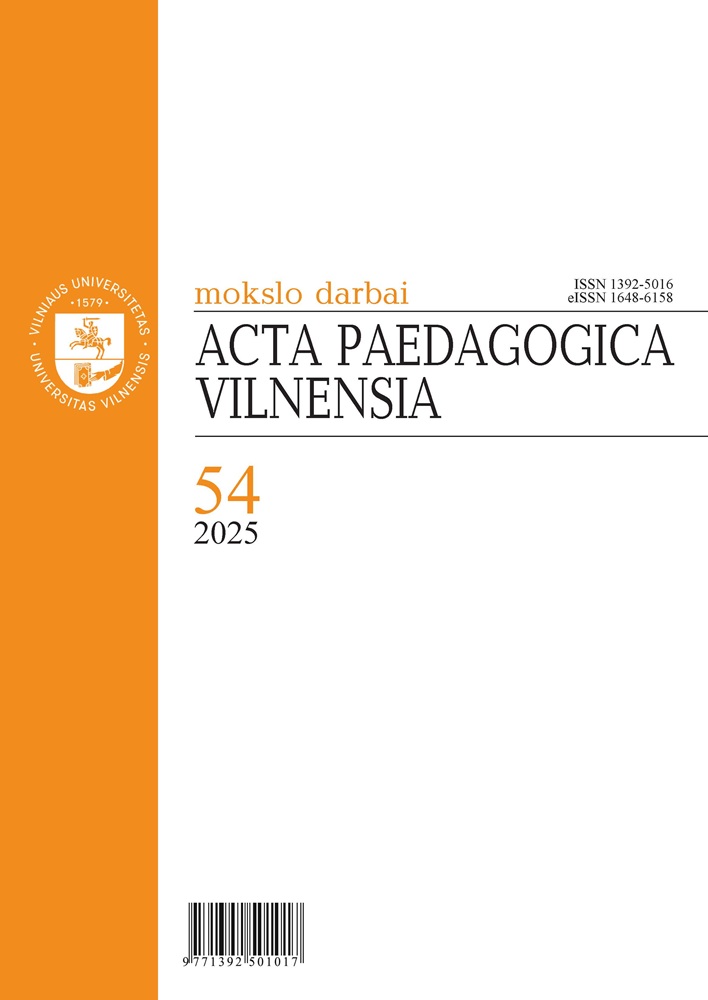Abstract
The curriculum in general education schools is the primary educational element connecting theoretical educational ideas with their practical implementation. Due to constant scientific, political, social, and cultural changes, curriculum transformation is an integral part of its development. Therefore, analyzing the curriculum requires an examination of the factors influencing its evolution as an inseparable element of the educational process.
This article explores two dominant curriculum perspectives – specifically, the narrow (traditionalist) and the broad (reconceptualist) approaches – in the context of the current changes in the Lithuanian general education curriculum. The traditionalist approach is based on a standardized, outcome-oriented curriculum, whereas the reconceptualist perspective emphasizes curriculum dynamism, individualized learning, and a contextualized educational process. The article analyzes how these two perspectives manifest in the development of Lithuania’s general education curriculum, particularly in relation to competency-based learning, inclusive education, and the flexibility of the curriculum.

